Y25_Tiếng anh_Chapter 4: The muscular system
1/25
There's no tags or description
Looks like no tags are added yet.
Name | Mastery | Learn | Test | Matching | Spaced |
|---|
No study sessions yet.
26 Terms
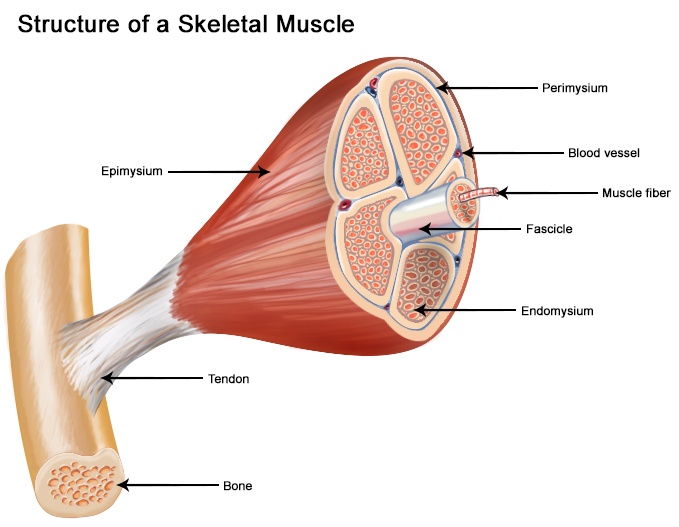
Skeletal muscle
(n)_[Count]: Muscle attached to bones that produces voluntary movements.
Cardiac muscle
(n)_[Uncount]: Cơ tim
Striated muscle
(n): cơ vân
Smooth muscle = Visceral muscle
(n): Muscle in internal organs and blood vessels, involuntary.
Contractility
→ Contract (v) = constrict (v) >< Dilate (v)
(n): Khả năng co rút
Extensibility
(n): Khả năng giãn
Excitability
(n): Ability of muscle to respond to stimuli. → Tính hưng phấn
Elasticity
(n): Tính đàn hồi
Involuntary
(adj): Not under conscious control.
Voluntary
(adj): Under conscious control.
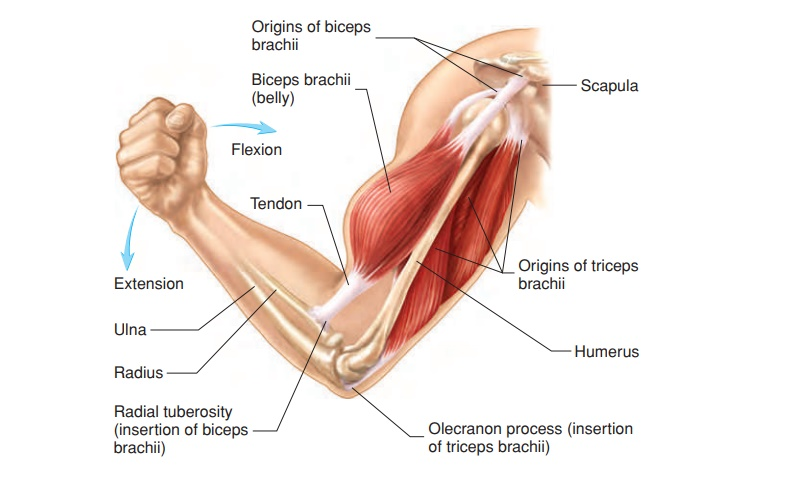
Origin
(n): The fixed attachment point of a muscle. → Nguyên ủy (điểm bám cố định của cơ).
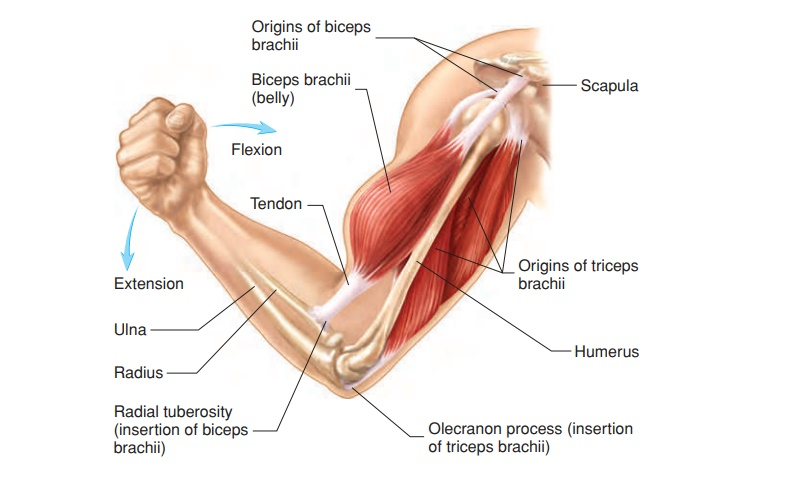
Insertion
(n): The moving attachment point of a muscle. → Bám tận (điểm bám di động của cơ).
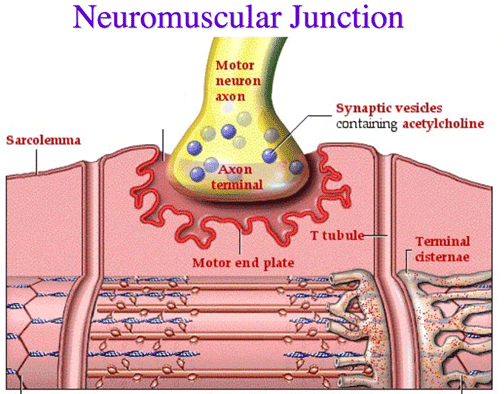
Motor end-plate
(n): Specialized region where motor neurons communicate with muscle cells.
Neurotransmitter
(n): Chất dẫn truyền thần kinh.
Autorhythmic
Ex: Cardiac muscle is autorhythmic because it contracts without signals from the brain.
(adj): tự phát nhịp
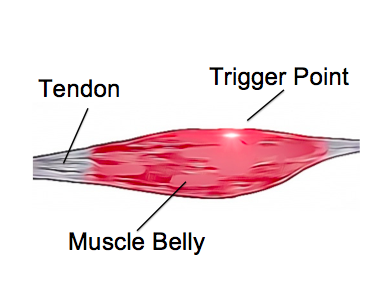
Muscle belly
Visceral muscle
(n): Smooth muscle found in internal organs, responsible for moving substances like food. → Cơ nội tạng.
Exert
Ex:
1, Some managers exert considerable pressure on their staff to work extra hours without being paid.
2, When we exert ourselves, body temperature rises.
(v)_[Trans]
1, to use something such as authority, power, influence, etc. in order to make something happen.
2, … yourself: to make a mental or physical effort. → Gắng sức.
Polio
(n): Bệnh bại liệt
Cerebral palsy
(n): Bệnh bại não
Muscular dystrophy
(n): A genetic disease causing progressive muscle degeneration and weakness. → Loạn dưỡng cơ
Myasthenia gravis
(n): An autoimmune disease that weakens voluntary muscles. → Bệnh nhược cơ.
Tetanus
(n): Bệnh uốn ván.
Strain
(n): Injury to a muscle or tendon due to overstretching.
Compartment syndrome
(n): Hội chứng chèn ép khoang
Hernia
(n): A condition where an organ pushes through a weak spot in muscle or tissue. → Thoát vị.